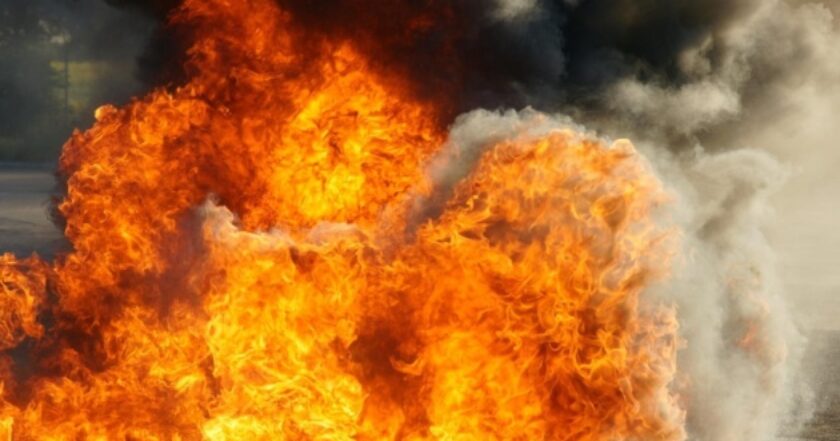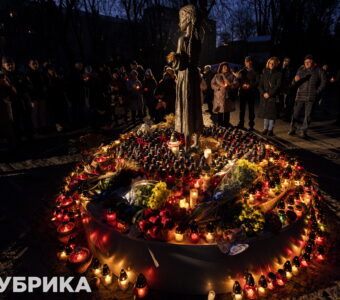Russia's full-scale war against Ukraine has caused 120 million tons of carbon emissions in the past year

The photo is illustrative
Air attacks, shelling, and fires they caused in Russia's full-scale invasion of Ukraine led to additional emissions of about 120 million tons of carbon dioxide, Minister of Environmental Protection and Natural Resources Ruslan Strilets reported in a statement.
"120 million tons of additional emissions — this is how much CO2 was provoked by Russian armed aggression against Ukraine," the minister said. "Of them, 50 million tons are indirect emissions for Ukraine's post-war reconstruction, and 39 million tons were directly produced from hostilities and fires."
The minister reported that the area of fires with the advent of the full-scale war in February 2022 increased from 35,600 ha to 495,100 ha. This area is 460,000 hectares more than the average annual area of all fires in the entire EU from 2006 to 2021.
"For the most part, hostilities take place in forests. Forest fires caused 16.5 million tons of emissions to enter the atmosphere in the past year," Strilets said. "This is a double blow to the climate system. We are faced with the loss of the CO2 absorption potential of forests. In Ukraine, it decreased by 175,000 tons of CO2eq annually (0.5%)."
The minister also said that Russian armed aggression against Ukraine calls into question the achievement of climate goals by the civilized world.
"The hostilities do not end on the front line. At any moment, in any corner of Ukraine, an enterprise, a forest, or an oil depot can burst into flames," he stressed. "For example, Russia has already launched over 10,000 missiles at Ukraine. But during the five years of the Syrian war, about 100 missiles have been used. This is not the end yet — the air raid alerts in our cities do not subside."
The minister reminded that Ukraine and the civilized world decided to reduce emissions and achieve climate neutrality by 2050. Ukraine is forced to fight against environmental pollution, although Ukrainian industry works at only 25%.
"Combat operations are impossible without fuel. Tanks, armored vehicles, aviation, logistical support of the army, and its mobilization require a large amount of fossil fuel," Strilets said. "Data on fuel consumption by the military is quite limited, but we know that the supply of gasoline, aviation, and diesel fuel to the Russian defense in the regions bordering Ukraine has tripled compared to 2021 and may reach 1.5 million tons. Actual fuel consumption is much higher."
The ecology minister also said that the total emissions from fuel combustion during the war are estimated at 18.8 million tons of CO2. Another category of pollution comes from the detonation of ammunition, which provided an additional 2 million tons of emissions during the year of the war, the minister added.
During the year and a half of the war, the State Inspectorate registered more than 2,500 Russian crimes against the environment.
"The outcomes will be felt by people far beyond the borders of Ukraine," Strilets said.
Rubryka reported that the damage caused to the Ukrainian environment had increased five times in the past year.
According to Strilets, for the first time in world history, environmental damage may become one of the causes for the reparations Russia will have to pay for its war crimes committed in Ukraine.

The term "ecocide" should be defined as new crime in international law – Ukraine's environment minister

"Ukraine's victory will make Europe's dependence on the Russian Federation and China impossible" or How Ukrainian subsoil can transform into an investment magnet

Fires in one of the largest biosphere reserves of Ukraine: what can be done to preserve ecosystems?




















































